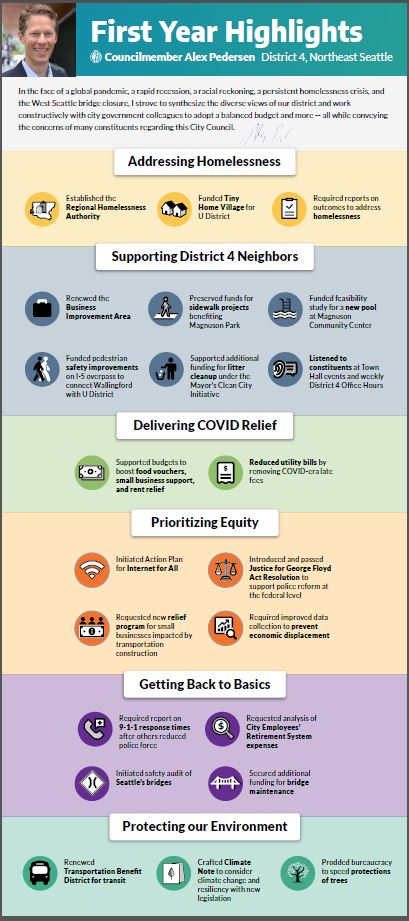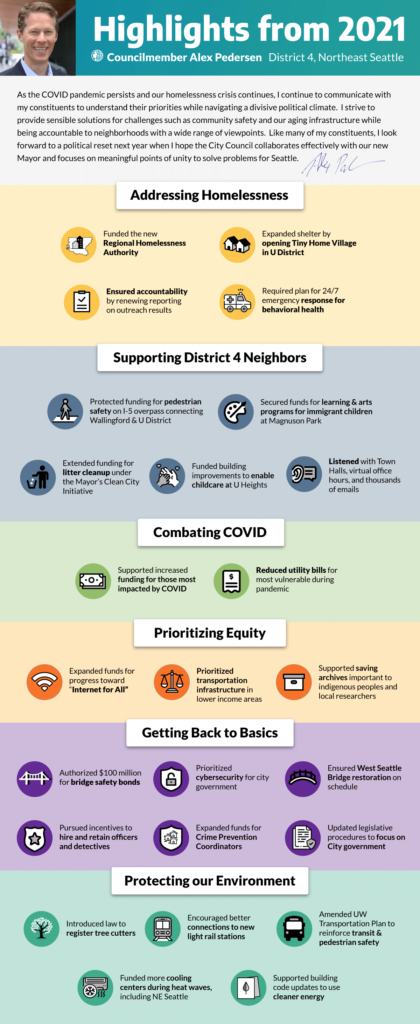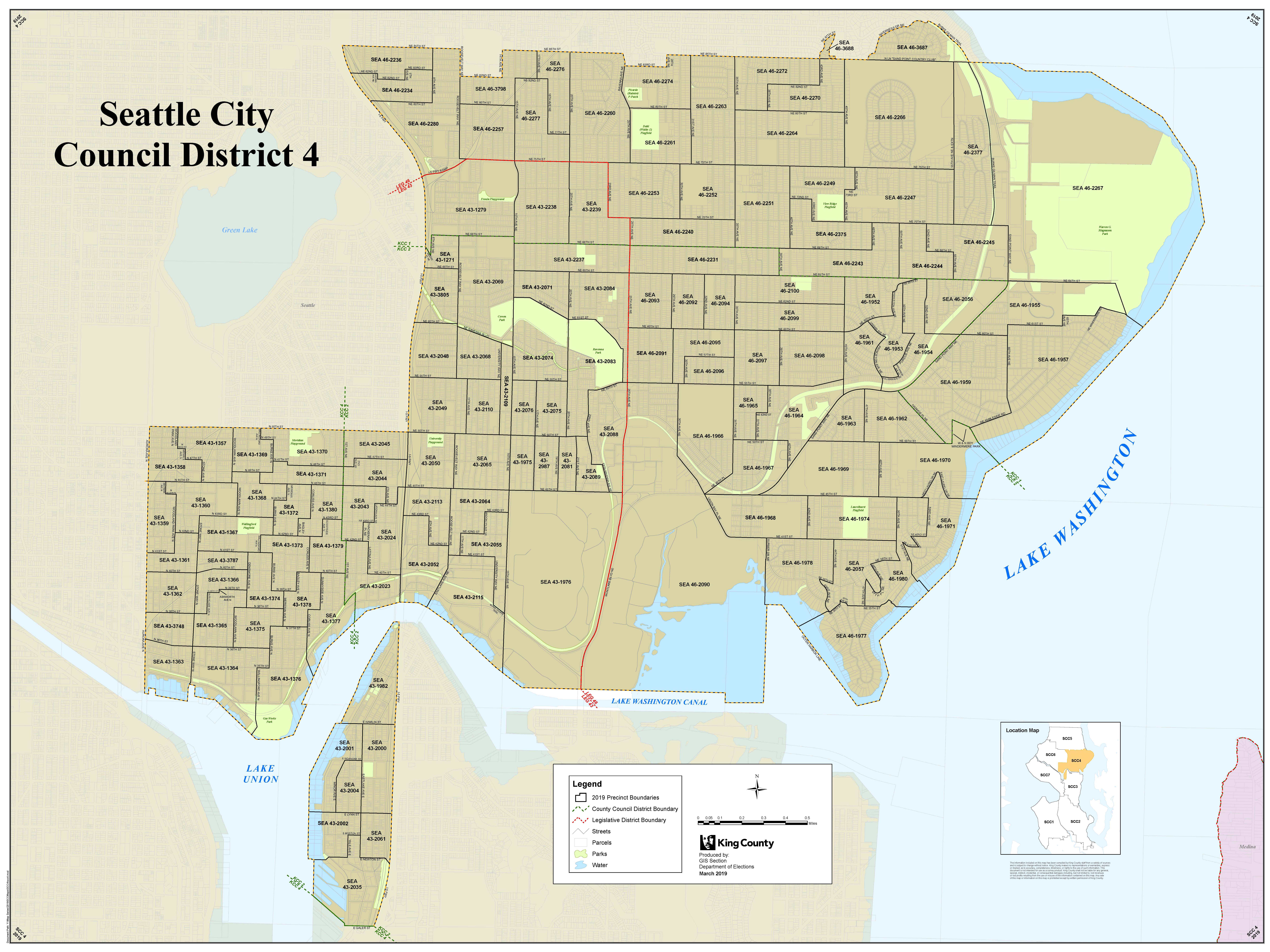Track Record: Councilmember Alex Pedersen
Elected in November 2019 to serve the 100,000 residents of Seattle’s District 4, City Councilmember Alex Pedersen has worked hard to honor and synthesize the diverse views of his constituents, to bring accountability to city government, and to improve the quality of life in all neighborhoods — despite the challenges of the COVID pandemic, discord about public safety, economic disruptions, and long-neglected infrastructure.
- For Alex Pedersen’s bio, CLICK HERE.
- For Alex Pedersen’s blog as a Seattle City Councilmember, CLICK HERE.
- For Councilmember Pedersen’s Op Ed (co-authored with a local economist) expressing concerns about a local business tax during the 2020 recession, CLICK HERE. For his Op Ed about the positives — and negatives — of the budget adopted in November 2020 for the calendar year 2021, CLICK HERE. For his Op Ed about Seattle’s economic recovery for 2021 and beyond CLICK HERE. For an Op Ed about public safety budgeting in 2022, CLICK HERE.
- For Alex Pedersen’s main website for City Council, CLICK HERE.
- For the map of Seattle’s District 4 through 2023, CLICK HERE.
For highlights from his public service as a Seattle City Councilmember, please keep reading…



2020 Details:
Here’s an excerpt from our December 2020 newsletter with highlights from 2020, Councilmember Pedersen’s first year in office:
Addressing Homelessness:
Set up Regional Homelessness Authority. A year ago, I cast a key vote to support the Regional Homelessness Authority between King County and the City of Seattle. It is clear the status quo has not worked, and a regional response to this regional crisis is needed. In taking this groundbreaking step, we are honoring the research and advice of experts to end the fragmented approach we currently have. It is my hope that we will now unify in a holistic and aligned manner to achieve better results. Although the selection of a CEO to stand up the organization has been delayed by COVID, we look forward to action in 2021. In addition to establishing the RHA last year, the City budget we recently approved finally sets aside the funds to fulfill the City’s financial commitment to this new regional effort. CLICK HERE for a link to the legislation, CLICK HERE to see King County’s statement on this issue, and CLICK HERE for the website of the new Regional Homelessness Authority.
Funded a Tiny Home Village in the University District. Given the COVID-19 pandemic and the ongoing homelessness crisis, I agree that well-organized tiny house villages can be a cost-effective intervention in conjunction with case management and a performance-based contract with our City’s Human Services Department. We have seen a sharp rise in encampments in D4, done the legwork of finding a suitable short-term location for a Tiny House Village, and wish to move expeditiously to address this urgent concern of finding shelter and housing compliant with CDC guidelines. This new Tiny Home Village at NE 45th Street and Roosevelt Way NE will provide shelter (30 to 40 tiny homes) and case management for those experiencing homelessness there. The village will be temporary (1 to 2 years) until the COVID pandemic is completely behind us and the site is developed, most likely with affordable housing.
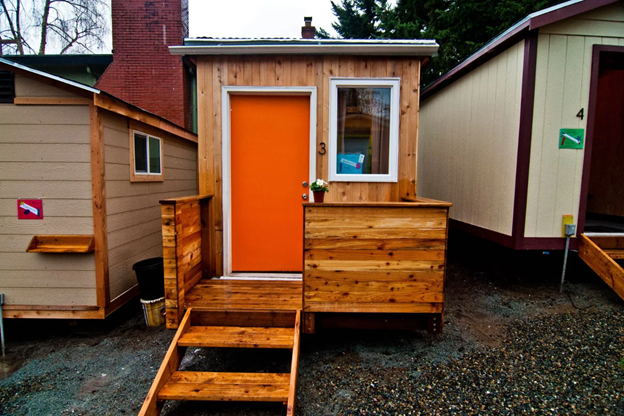
Photo from nonprofit Low Income Housing Institute
FYI: For 90 of the coldest days, the University of Washington will once again host “Tent City 3,” which will have shelter for between 40 and 70 people experiencing homelessness. The location is the southern edge of campus behind the Wallace Building at NE Pacific Street & Brooklyn Ave in parking lot W35. For more info from UW, visit their “Addressing Homelessness” website by CLICKING HERE.
Improved accountability for homelessness response. At a time when homelessness appears to be growing, a majority of my Council colleagues unfortunately used the budget to dismantle our city’s interdepartmental Navigation Team that engaged with unauthorized homeless encampments. Instead, I believe we should have allocated more resources to our Human Services Department to track and evaluate the effectiveness of such changes. By a vote of 6 to 3, my colleagues accepted my proposal to require at least some tracking of results of their new model of outreach to homeless encampments. I firmly believe that we should always measure outcomes to make sure we are truly helping people.
Supporting District 4 Neighbors:
Renewed the Business Improvement Area. This year the City Council unanimously approved the legislation which I co-sponsored to reauthorize the Business Improvement Area (BIA) in the University District, which is the heart of District 4. BIAs are positive, community-driven economic development tools that help keep neighborhood business districts clean and safe throughout our city. The legislation I crafted with the Mayor incorporates many key principles sought by smaller businesses, including better representation, good governance, and as well as a more formal focus on preserving existing shops and restaurants. During and after the COVID-19 pandemic, we need to give our small neighborhood businesses the support they need to thrive. For a link to the Council Bill 119779 and related docs, CLICK HERE. For a link to the map of the proposed BIA, CLICK HERE.
Preserved funds for sidewalk projects benefiting Magnuson Park. We preserved the vital funding to build and enhance sorely needed sidewalks and crosswalks to safely connect Magnuson Park to the surrounding communities along Sand Point Way NE and to the bus stops and Burke-Gilman Trail across from the park. These sidewalks and crosswalks are needed now to meet the goals of three city government initiatives: Vision Zero, our Pedestrian Master Plan, and our Safe Routes to School program helping to safely connect dozens of children to Sand Point Way elementary school. This is about safety for pedestrians, it’s about safety for cyclists, it’s about connecting 850 low-income and BIPOC Magnuson Park residents to their neighbors, and it’s about safely enhancing access to the regional asset that is Magnuson Park. Funded feasibility study for a new pool at Magnuson Community Center. We secured funding to study the feasibility of a new pool at Magnuson Community Center. Frankly, a new pool there might not be feasible, but the vision of hundreds of low-income kids who call Magnuson Park home taking swimming lessons within a city surrounded by water and having fun year-round in a pool they can walk to is too irresistible not to study the possibilities. Data reveal children of color have less access to parks and recreational programming that enhance self-confidence, maintain health, foster creative expression, and increase social and emotional bonds that strengthen community cohesion.
Funded pedestrian safety improvements on I-5 overpass to connect Wallingford with U District. There are only two east-west crossings of I-5 between 65th/Green Lake and North 40th Street: NE 45th and NE 50th Streets. Both are heavily traveled by cars, and 45th by many buses, pedestrians, and bicyclists. Both 45th and 50th are very difficult and dangerous for non-motorized users. As a result, the University and Wallingford communities have advocated for improvements for many years. Unfortunately, the bridge itself is a Washington State DOT asset, making it difficult for our Seattle DOT to implement fixes. Solving the problem has become more urgent as the new Sound Transit Link station in the U District prepares to open in 2021. SDOT completed some initial design work in coordination with WSDOT, but it lacked funding to implement. Community leaders and transportation safety advocates worked with my office to insert $400,000 into the 2021 budget, so that construction of the improvements on the I-5 overpass are possible now. To see the official budget action, CLICK HERE.
Supported additional funding for litter cleanup under the Mayor’s Clean City Initiative. CLICK HERE to read an overview of this $3 million dollar initiative to surge the clean-up of litter and illegal dumping. The City will stand up a rapid response team within Seattle Parks and Recreation to address trash in parks, and make infrastructure improvements in key parks to improve overall cleanliness. The proposal increases the purple bag program, the number of needle disposal boxes in the city and would expand the graffiti ranger program. Funding would also be directed to business districts throughout the city to increase contracted cleaning in their neighborhoods such as the University District. In addition, SPU would more than double the number of trash pickup routes which provide twice weekly collection of trash and bulky items in public rights of way which should greatly benefit District 4. I also took the simple, yet unprecedented step directly imploring the Washington State Department of Transportation (WSDOT) to pick up the trash along the I-5 greenways they own. WSDOT replied to say they will strive to do a better job to make their I-5 greenways cleaner.
Delivering COVID Relief:
Supported funding for food vouchers, small business support, and rent relief. City Council and Mayor Durkan have been working to mitigate the economic impacts of the COVID pandemic. This work has included relief for people who could not access federal aid, food support, small business grants, internet and computer access, and assistance with rent, utilities, and other bills. CLICK HERE to learn more.
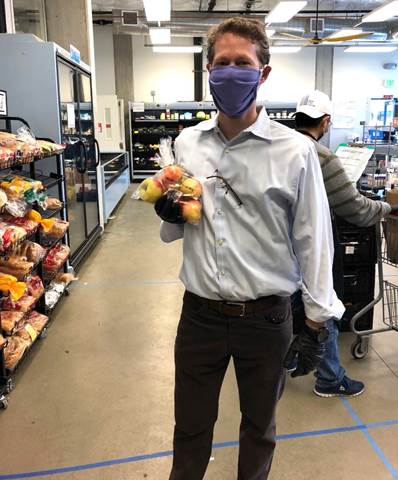
Reduced utility bills by removing COVID-era late fees. When the COVID pandemic struck early in the year and the economy went south, many utility customers have had difficulties keeping up with their bill payments. Working with both Seattle City Light and Seattle Public Utilities, I sponsored a bill to eliminate late fees and interest on both SCL and SPU bills during the crisis. The period of relief under that bill is expiring at the end of 2020, so I led the passage of another bill extending the relief at least through the first half of 2021 (or until the City/State emergency declarations are lifted). The first bill is HERE, and the new one is HERE.
More COVID relief: For more about specific COVID relief programs in Seattle, scroll down to the end of this newsletter for links to key city government and other helpful websites.
Prioritizing Equity:
Initiated Action Plan for Internet for All. We reaffirmed our commitment to our ambitious Internet for All initiative in the budget document to increase accountability to follow through on the Internet for All Action Plan’s eight strategies. The next report from Seattle’s Information Technology Department to my Transportation & Utilities Committee will be in the first quarter of 2021. The report will summarize progress to increase access and adoption of affordable and reliable internet service, including setting up accountability dashboards to track results.
Requested new relief program for small businesses impacted by transportation construction. During this year’s budget process, in order to address concerns of businesses in the U District and other neighborhood business districts, I advanced a “Statement of Legislative Intent” to have the Office of Economic Development (OED) collaborate with the Seattle Department of Transportation (SDOT) to propose a strategy for funding and distributing financial assistance to small businesses that are adversely impacted during the construction of City-led transportation projects. This is easier said than done due to constraints of State law, but it’s important to pursue this because vulnerable small businesses are too often impacted by our government’s own construction projects.
Required improved data collection to prevent economic displacement. When adopting major new land use changes or moving ahead with new construction projects, we need to ensure we have a detailed and accurate system to track the potential loss or demolition of existing naturally occurring affordable housing—and the displacement of low-income households. The data on displacement of low-income households needs to include rent levels and supply of naturally occurring affordable housing. We need to better understand the NET impacts. This information will enable us to better quantify our new and existing stock of affordable housing. The Council included in the 2021 budget my request that the City actually obtain the data we need to implement Resolution 31870, section 2.G. and Executive Order 2019.02. Getting this information will provide a more comprehensive picture of our City’s affordable housing stock, so that we can do more to prevent economic displacement in Seattle. To read the official budget action, CLICK HERE.
Introduced and passed Justice for George Floyd Act Resolution to support police reform at the federal level, too. Despite disagreements on various public safety issues, City Council unanimously passed my Resolution 31963 which I drafted to voice our support for the national legislation entitled “The George Floyd Justice in Policing Act.” That federal bill is H.R. 7120, introduced by Congresswoman Karen Bass, Democrat from California and supported by Seattle’s congressional delegation Pramila Jayapal and Adam Smith. It passed the U.S. House of Representatives but has yet to advance in the U.S. Senate. This federal bill addresses many concerns raised by protesters that are authorized by federal law, such as the need to restrict qualified immunity for police officers across the nation.
Getting Back to Basics:
Requested analysis of City Government Employees’ Retirement System expenses. While we want city government employees to have access to retirement benefits from a sustainable retirement system, my concern is that Seattle taxpayers continue to pay an increasing amount to support the pension program of our City government employees. My colleagues agreed to my budget request to have the city government clearly quantify and shine a light on these expenses paid by Seattle’s taxpayers, so that the general public and media are more aware of these costs and the upward trend. We want a sustainable retirement system for our employees. At the same time, we are conscious that every extra dollar paid by City taxpayers to support a government employee lifetime pension is a dollar not provided for other urgent needs, such as housing those experiencing homelessness. While we cannot change current pensions, we may want to consider providing more sustainable retirement options for FUTURE new city government employees, so that these retirement programs available only to government employees do not unnecessarily drain money from external-facing programs serving our city’s most vulnerable populations and communities. The next generation of younger, new employees who have a more mobile and versatile career path might appreciate other options that do not rely on decades of local government service to provide the most retirement benefits.
Obtained funding for transportation priorities from Vehicle License Fees. After the Supreme Court overturned Tim Eyman’s Initiative 976 as unconstitutional, the City of Seattle is able to tap again the vehicle license fees (VLF) as a source for transportation projects and programs, including bridge maintenance. Currently we pay $80 to the City and that was going to drop to only $20 because a $60 VLF approved by voters in 2014 is expiring. As allowed by State law, the Council adjusted it to $40. That incremental $20 VLF will raise $3.6 million in 2021 and $7.6 million per year when there is a full year of funding starting in 2022. We could have immediately dedicated the funds for bridge maintenance (see article below), but a majority of the Council decided to do a public process to decide how to spend the revenue; described in the legislation HERE (last two “Whereas” clauses). Despite the disappointing delay, I am hopeful the additional process will lead to a robust increase in funding for bridge safety from several sources, which was called for by the audit of bridges I initiated and would benefit all modes of travel and keep our economy moving. For a Seattle Times article explaining the renewed VLF fee, CLICK HERE.
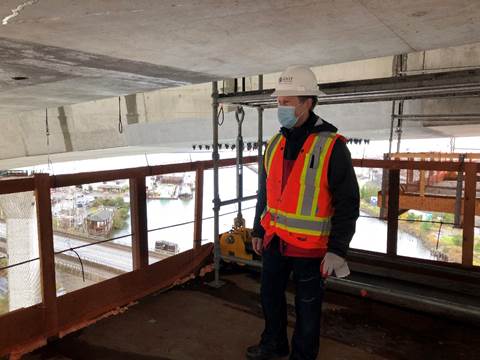
Initiated safety audit of Seattle’s bridges and secured additional funding for bridge maintenance. After the Mayor had to close the West Seattle Bridge suddenly in March, I initiated an audit by the City Auditor to review the status of the bridges across Seattle and their ongoing maintenance needs. The audit report concluded that the City should be spending at least $34 million per year on bridge maintenance, but spent about $10 million in 2020 and less in earlier years. This underspending results in deterioration of the City’s infrastructure over time. As I had requested, this audit was delivered to the Council in time to inform the 2021 budget. I worked hard on a number of fronts to increase the City’s commitment to bridge monitoring and maintenance, and succeeded in raising the 2021 figure to about $14 million. While that’s a step in the right direction, we need a larger and longer source of stable revenue. Frankly, I’m disappointed that some of my colleagues did not use this budget as an opportunity to take infrastructure safety more seriously by providing more dollars. My blog posts discussing the bridge audit and related budget items are HERE and HERE. For an editorial by the Seattle Times on this topic, CLICK HERE.
Protecting our Environment:
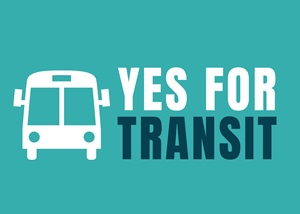
Renewed Transportation Benefit District for transit. We are thankful to Seattle voters for approving Seattle Proposition 1 in November 2020 to authorize a six-year 0.15% sales tax for the Seattle Transportation Benefit District (STBD), which focuses on supplementing the bus service from King County Metro as well as providing free transit passes for those most in need. Exactly how to spend renewed STBD funds as well as other transportation infrastructure dollars in 2021 will be a major topic for discussion in my Transportation & Utilities Committee — and for many Seattle residents.
Crafted Climate Note policy to consider climate change and resiliency with new legislation. The Seattle City Council unanimously approved Resolution 31933, which I crafted. The Resolution will, for the first time, require the City Council to formally consider the crisis of climate change when reviewing new legislation. For more about climate change and the new Biden Administration, see below.
Prodded bureaucracy to speed protections of trees. Washington is the “Evergreen State” and Seattle is the “Emerald City.” Trees provide numerous benefits including carbon sequestration, absorption of rainwater to reduce harmful runoff into Puget Sound and Lake Washington, shade for cooling during the warmer months, and proven health benefits. The bigger the tree, the better. As we take a long overdue, serious look at racial injustice issues, we know some communities of color have fewer large trees and are having them removed more often. As far back as 2009, our City Auditor determined that fractionalized management of trees and urban forestry issues was a major problem for the City of Seattle and recommended consolidation. Instead, the City for eleven years has continued to try to make a multi-departmental approach to tree management work. As it has boomed with development, Seattle has struggled to prevent continued loss of significant numbers of large trees and reduced tree canopy area. It’s oversight to protect trees is not only fractured, but weak. I proposed two budget provisions to improve Seattle’s management of its urban forest resources: A budget proviso to withhold funds from the Seattle Department of Construction and Inspections (SDCI) if it didn’t deliver an updated tree ordinance to the City Council by mid-2021 under Resolution 31902, and a request for a report (HERE): “the Executive, Urban Forestry Commission (UFC), and Urban Forestry Interdepartmental Team [shall] evaluate models for consolidating the City’s urban forest management functions and, based on this evaluation, make recommendations on how changes could be implemented.” Unfortunately, my colleagues did not support my tough proviso, but the Executive is aware that the public and councilmembers are impatient and will be demanding action in 2021. Fortunately, the requirement for strategies to better manage our urban forest passed and will delivered to Council by September 15, 2021. My staff and I will be carefully monitoring the City’s implementation of these important quality of life and equity items.
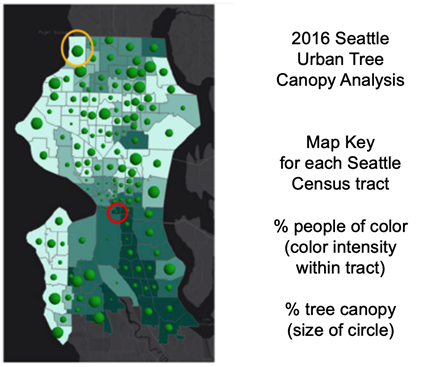
Photos from 2020:
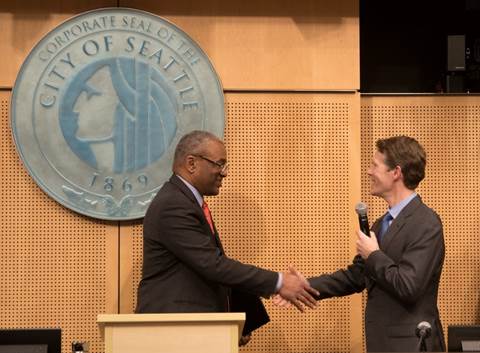
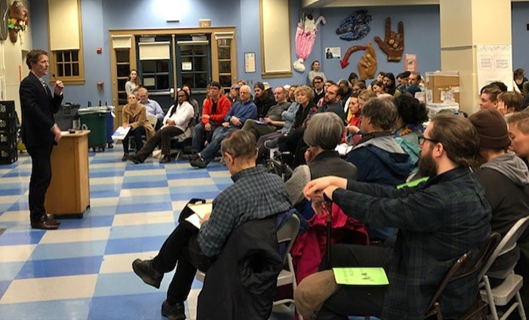
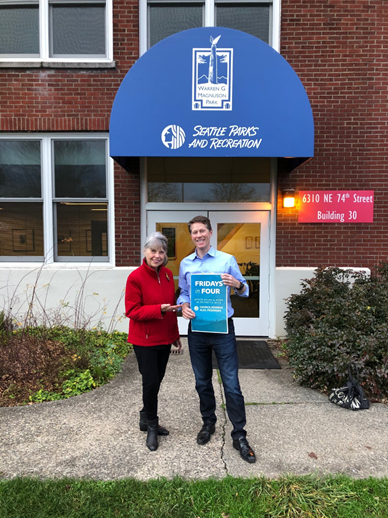
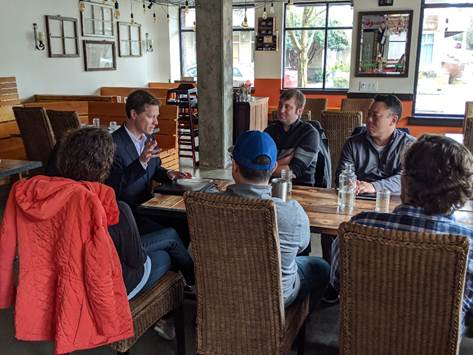
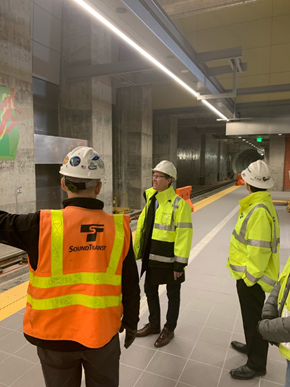
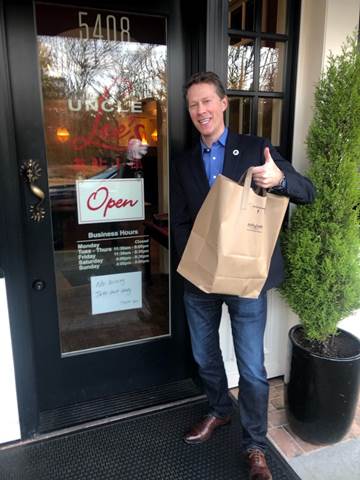
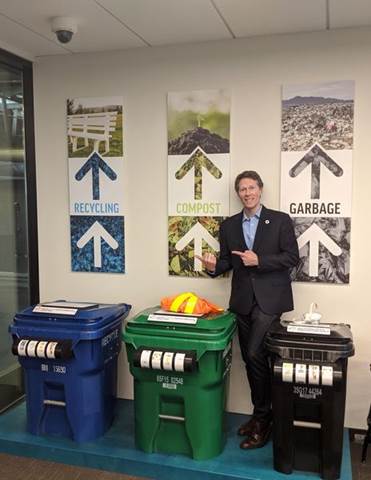
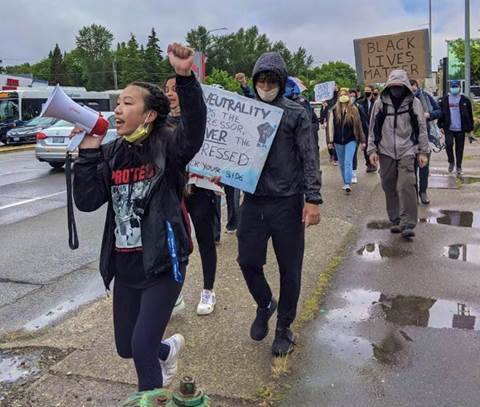
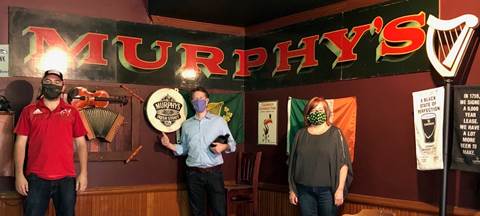
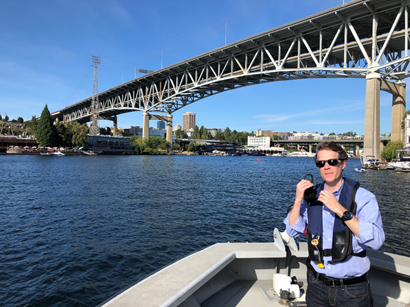
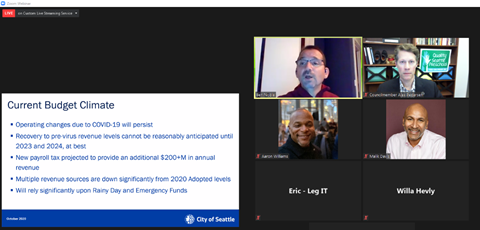
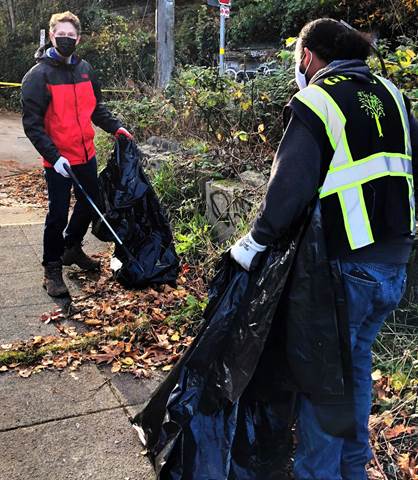
2021 Details:
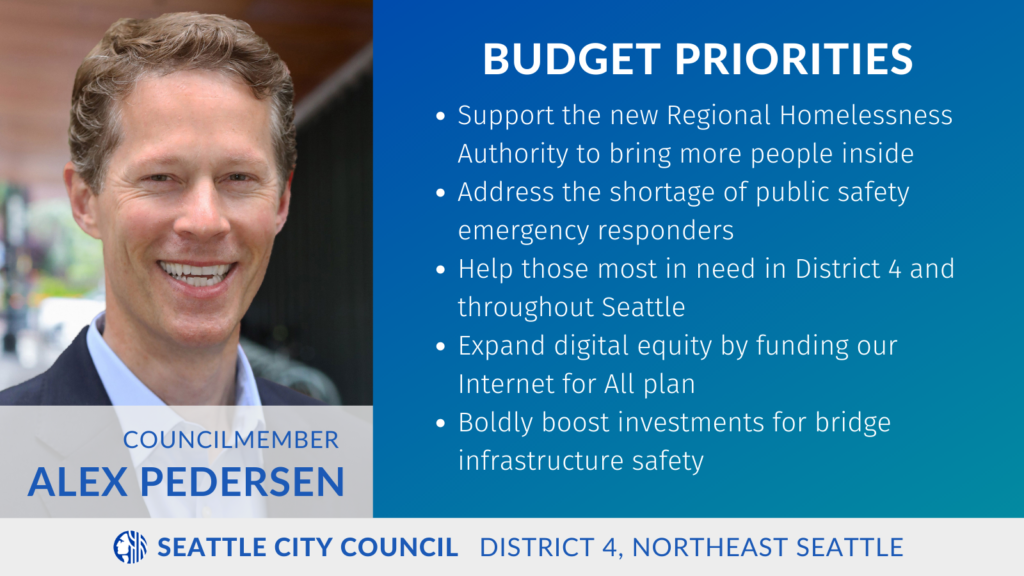
Keep reading for excerpts from our November 2021 newsletter, which provides details on the highlights from 2021 — Councilmember Pedersen’s 2nd year in office.
Here are my remarks during final passage of the City Budget in November 2021:
“Colleagues, as we know, the crafting of Seattle’s budget occurs during most of the calendar year, starting with proposals from each City department. So I’d like to thank our Mayor, her department heads and their teams, and our City Budget Office under the leadership of Ben Noble. And, here in the legislative branch, many thanks also to our City Council Central Staff, our Information Technology Team, the City Clerks, the LA team in my office, and many others for their hard work under the deadlines of our rigorous Fall budget review process. I’m especially grateful to our Budget Chair’s leadership and her grace in giving us the space to offer amendments and differences of opinion.
“As with all budgets that are crafted and amended by multiple teams with various perspectives and approaches, there are items that we and our constituents like (especially programs for those most in need in our Council districts) and there are items that we might NOT like (especially as we debate how best to fund public safety, increase accountability, and deploy some effective alternatives to our traditional emergency response systems).“
– Councilmember Alex Pedersen, November 22, 2021.
As should be expected with any budget, some of my amendments passed and some did not. Keep reading for a summary of my efforts for District 4 and Seattle. (Note: I also co-sponsored several amendments from my colleagues but, for brevity, I don’t list the co-sponsorships here.)
Community Health and Safety Amendments:
- Finalize plan for 24/7 emergency response to behavioral health needs: APPROVED.
- Measure results for homelessness outreach efforts: RENEWED.
- Create retention incentives to address alarming attrition of community policing officers and detectives: REJECTED.
- Restore $10 million of $10.8 million reduction.* (Yes votes: Pedersen, Juarez, so unfortunately REJECTED 2 to 7)
- Restore $5.3 million of $10.8 million reduction.* Yes votes: Pedersen, Juarez, Lewis, so unfortunately REJECTED 3 to 6.
- Restore $2.7 million of $10.8 million reduction* (Lewis amendment). Yes votes: Pedersen, Juarez, Lewis, Strauss, so unfortunately REJECTED 4 to 5.
[*Note: the SPD figures moved around a bit as Budget Chair Mosqueda, thankfully, restored approximately $900,000 of the $1,300,000 expansion of the Community Service Officer program.]
Additional Thoughts on Police Budget:
Summary of table above: reductions since 2020 Adopted Budget for SPD: -$53,576,500 (-13%)
Fortunately, an effort to abrogate (delete) 101 vacant SPD positions failed last week. There were strong arguments made from both the proponents and opponents of that amendment. While it would have taken only 5 votes to delete those positions, it’s important to note that it would have taken 6 votes to restore them (or 7 votes if restored outside our normal Fall budget). We receive a staffing plan every 3 months from SPD and, with a new mayoral administration starting soon, it’s hard to predict how many officers we will have. So I believe deleting vacant positions would have been premature and might have conveyed the wrong message as a new Administration starts and we seek a permanent Police Chief.
Unfortunately, the budget adopted for SPD still lacked hiring incentives or additional retention incentives for our officers and detectives, which I believe are vital when over 300 officers and detectives have departed Seattle and 9-1-1 response times have increased. (For more on this issue from a recent Seattle Times editorial, CLICK HERE.)
With 39 days left until the new administration begins, I look forward to collaborating with Mayor-elect Harrell and his team in reimagining policing and community safety in Seattle, which includes the most appropriate and effective responses to emergencies as well as proven “upstream” prevention programs. As I have shared with you before, I believe the best path forward is to revamp the police union contract rather than cutting before alternatives are in place. The police union contract governs financial issues such as premium pay and the definition of overtime and crafting a better contract can also substantially strengthen accountability.
Bridge and Infrastructure Safety Amendments:
- Boldly boost investments in bridge safety to respond to City audit: bridge bonds to build back better! APPROVED. A special thanks to Budget Chair Mosqueda for her collaboration and flexibility to get this done, knowing it has been a key priority of mine for over a year.
- SDOT-505-A-002-2022 is the Council Budget Action (CBA).
- Council Bill 120224 is the companion bill.
- Redirect Center City Connector funds to transportation safety priorities: REJECTED.
- Increase understanding of wear and tear on Seattle’s streets by over-weight vehicles: ACCEPTED.
- Implement pedestrian/bike safety Improvements on NE 45th Street I-5 overpass connecting Wallingford and U District light rail: MODIFIED.
Good Government and Fiscal Responsibility Amendments:
- Optimize cybersecurity for our information technology and operational technology: MODIFIED.
- Boost Legislative Department budget to enable increased oversight (co-sponsored): ACCEPTED
- Add to City Auditor team to increase accountability & results with taxpayer investments (co-sponsor): REJECTED.
Equity and Environment Amendments:
- Advance our Internet for All strategies by sustaining last year’s increase to the Technology Matching Fund, deploying WiFi hot spots at libraries, and supporting “Digital Navigators” to increase access to affordable, reliable Internet for jobs, education, and healthcare: MODIFIED.
- Analyze affordable rents and building demolitions to prevent economic displacement: REJECTED.
- Assist small businesses when Seattle Department of Transportation work impacts streets/sidewalks/access: RENEWED.
- Craft plan to replace gas-powered leaf blowers with clean alternatives: APPROVED.
- Create a Chief Arborist position in a pro-environment City agency: APPROVED.
- Hold back some 2022 funding from the Seattle Department of Construction & Inspections (SDCI) until it delivers the promised tree protection ordinance: REJECTED.
- Support Seattle Public School parents, students, and bus drivers by investing in GPS software: REJECTED.
More For District 4:
- Support nonprofits, such as Kids and Paper, for immigrant families at Magnuson Park: APPROVED.
- Enable expanded childcare at U Heights by upgrading the fire suppression alert system: APPROVED.
- Restore community center at Laurelhurst: REJECTED 4 to 5. (Yes votes: Pedersen, Herbold, Lewis, Sawant)
- Improve our resiliency to confront climate change at NE Library (and SW Library) by creating cooling centers (with clean electricity) to withstand heat waves: APPROVED.
District 4 also won 4 Department of Neighborhood grants (from this year’s 2021 budget):

Last week, the City of Seattle awarded $891,000 to support 21 community-initiated projects through Seattle Department of Neighborhoods’ Neighborhood Matching Fund (NMF). Here are the winners from District 4:
- $50,000 to The Eli’s Park Project for Phase 4 of Burke Gilman Park Renovation.
- $50,000 to Friends of Troll’s Knoll (shared with District 6) for Phase 2 of Troll’s Knoll Art and Design.
- $38,000 to University Heights Center for Elevator Installation
- $50,000 to Historic Seattle Preservation Foundation for Phase 1B of the Good Shepherd Center Seismic Retrofit
For the announcement of all the grants in Seattle, CLICK HERE.
Photos from 2021:










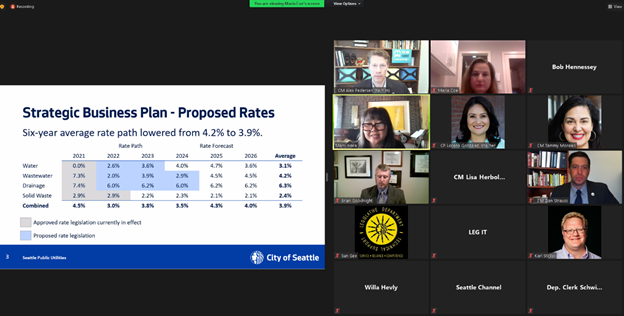


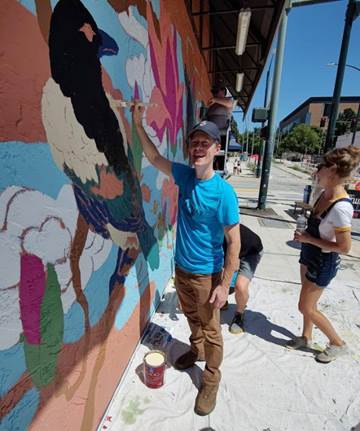
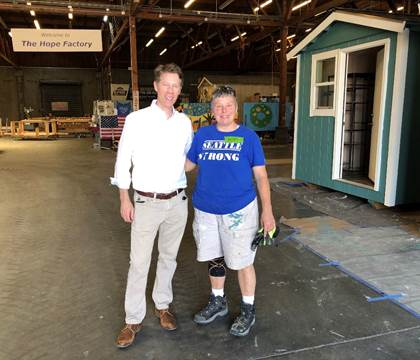
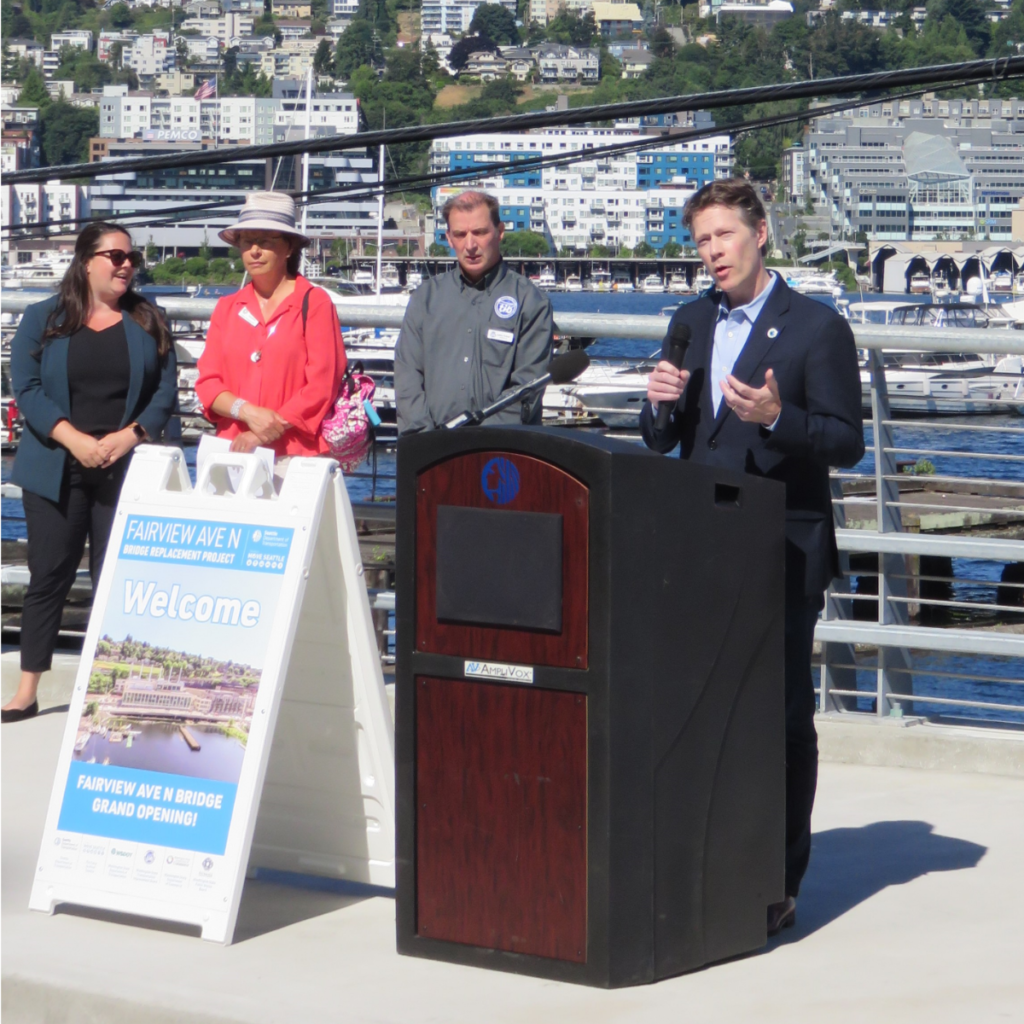
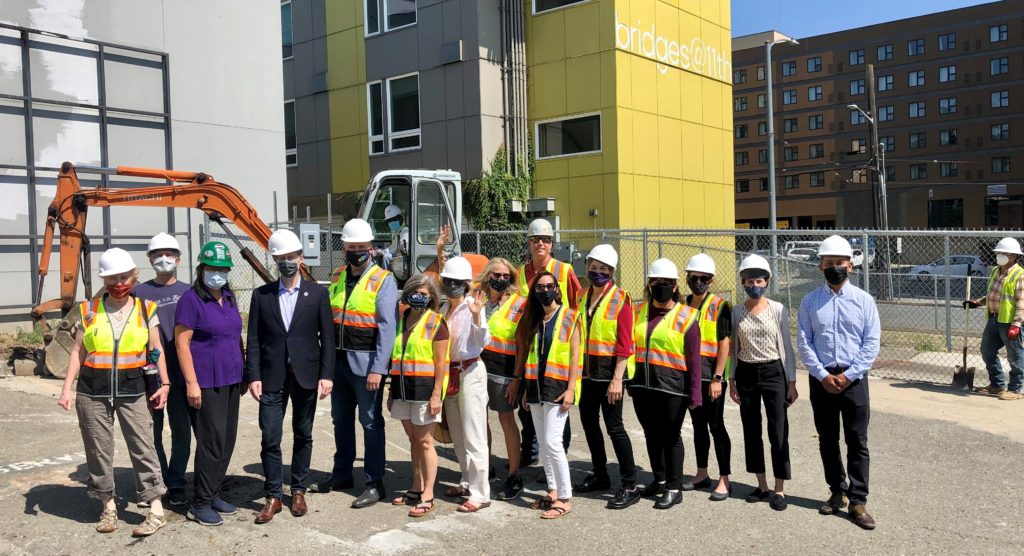
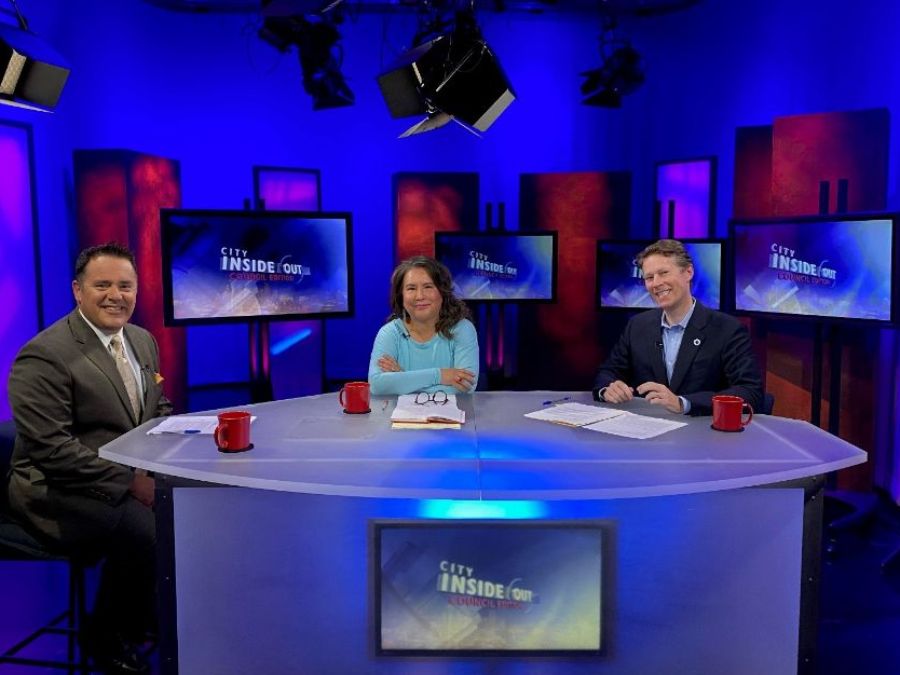
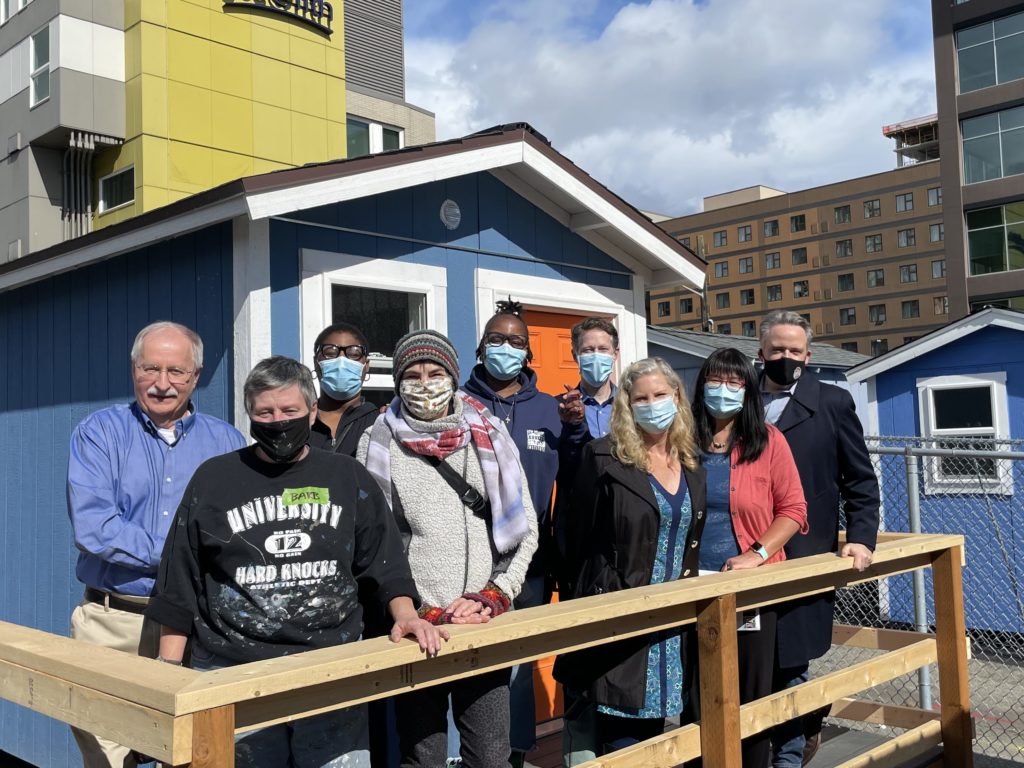




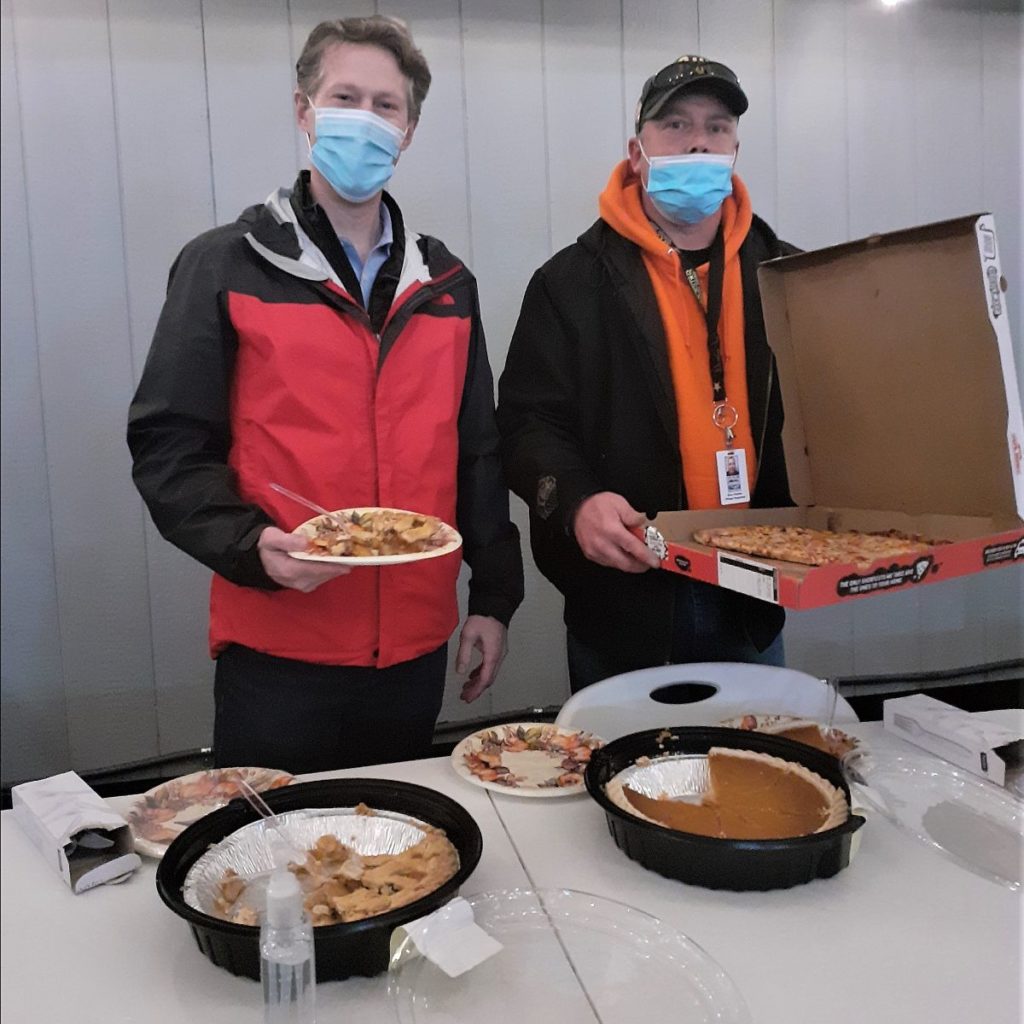
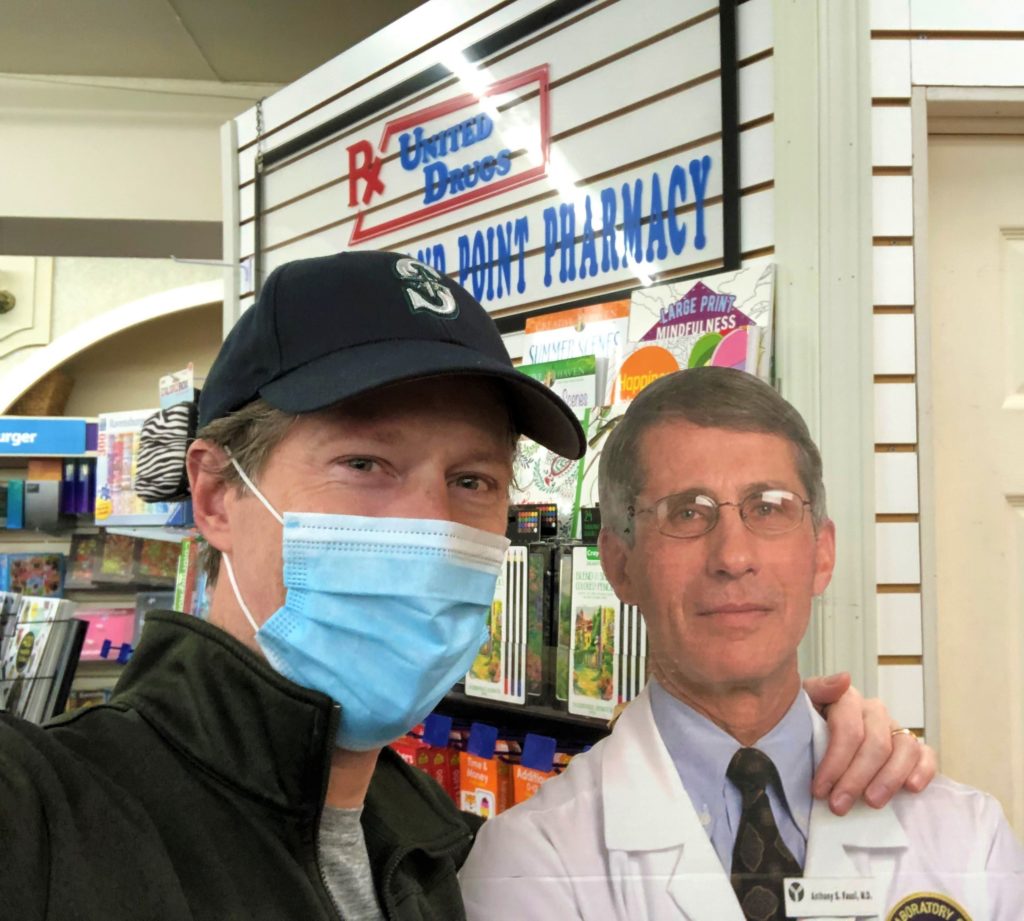
2022 Photos with details:










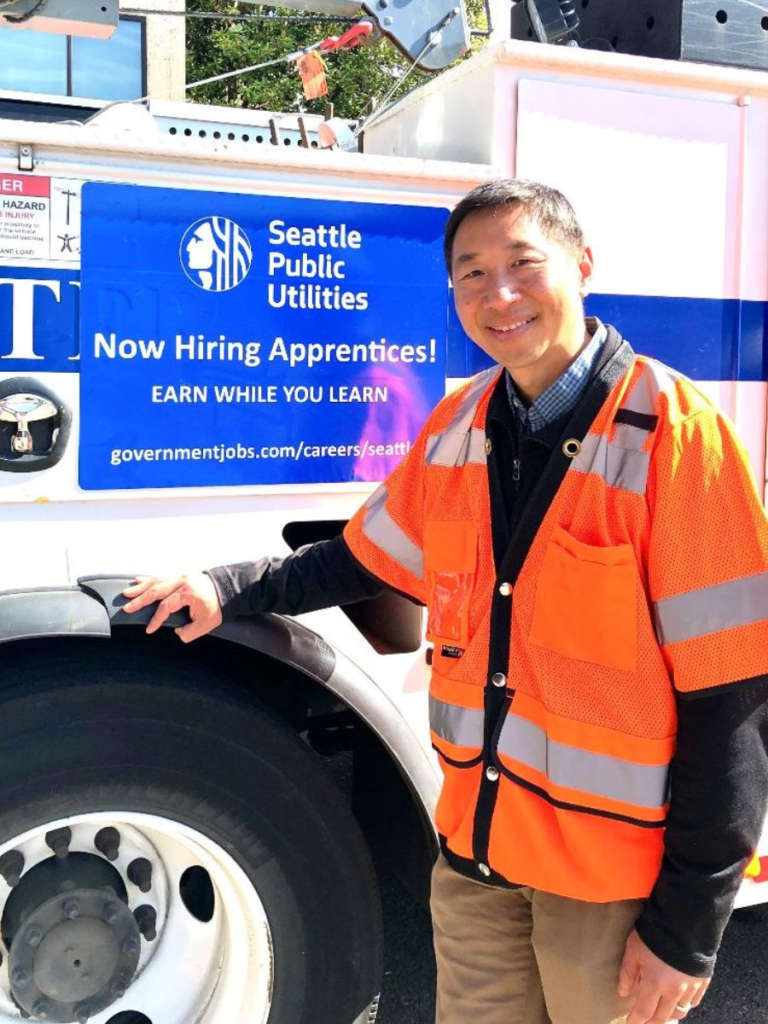





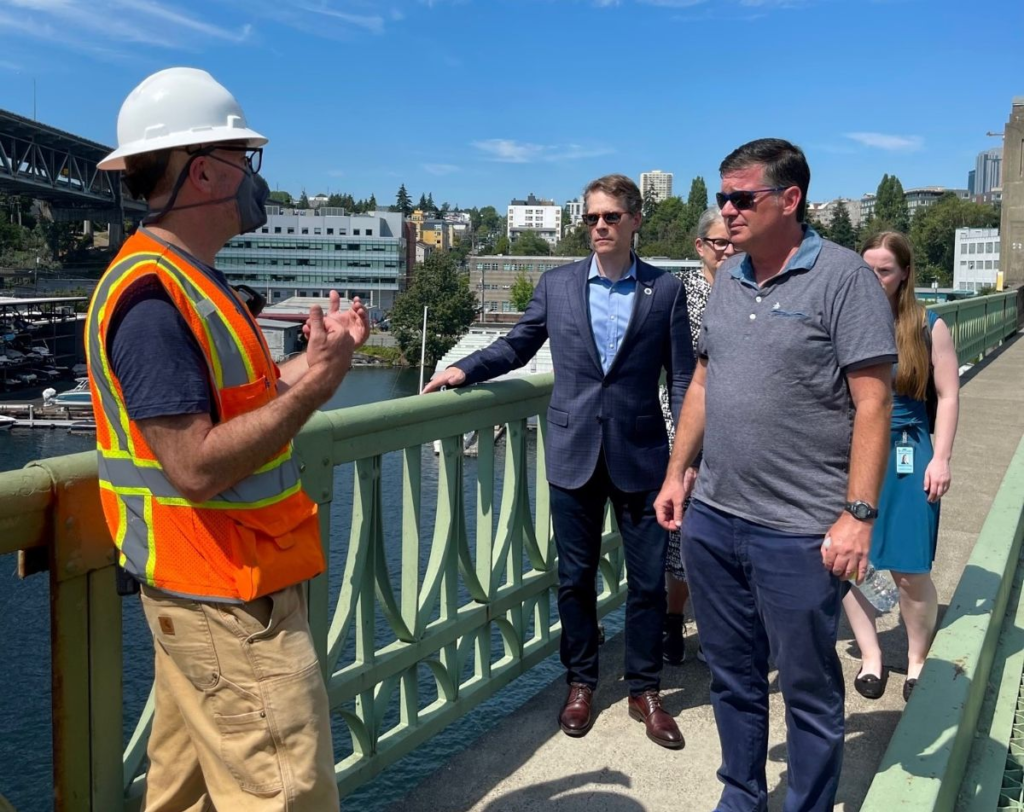

On September 10th of 2021 — 10 months earlier – I introduced two budget amendments to fund between $1 million and $3 million dollars for SPD recruitment and retention but, unfortunately, only 3 of my colleagues supported it. Since that time, we’ve received more recent data showing unacceptable increases in 9-1-1 response times and unacceptable increases in crime.
Councilmember Pedersen recently attended several “roll calls” at the beginning of police patrol shifts to hear from many of the officers who keep North Seattle safe. I appreciate the good work that they do and know it takes a long time to train and deploy new recruits.









For more info, go to: https://pedersen.seattle.gov/plan-to-phase-out-harmful-gasoline-fueled-leaf-blowers-in-seattle/

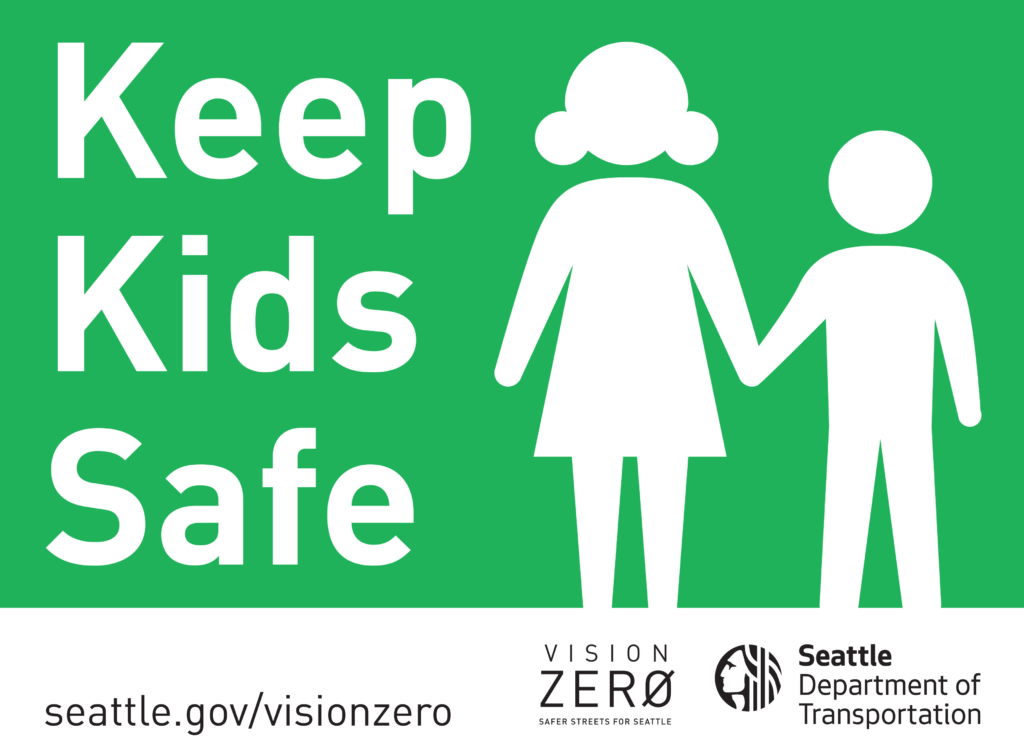


December 2022: “Puget Sounders Who Brighten Our Community” (Seattle Times)

“Seattle City Councilmember Alex Pedersen not only has demonstrated a commitment to constituents over special interests but has pushed for enhanced public safety and prudent transportation investments.”
2023 Details:
(For 2023, please see the 2023 pictograph at top of this website page for highlights and please see previous e-newsletters pasted into Councilmember Pedersen’s blog for details and photos.)
MORE INFO:
- For Alex Pedersen’s bio, CLICK HERE.
- For Alex Pedersen’s blog as a Seattle City Councilmember, CLICK HERE.
- For Alex Pedersen’s main website for City Council, CLICK HERE.
- For the map of Seattle’s District 4 through 2023, CLICK HERE.
# # #
Posted: January 26th, 2022 under Councilmember Pedersen

